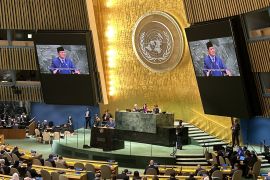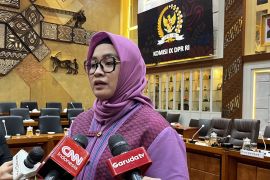"After two decades, democracy could be stable, but the dilemma, at the same time, is that its quality would be stagnant," Haris stated here on Tuesday, while speaking at a national seminar on the 20th anniversary of Indonesia`s reform themed "Two Decades of Reform: Quo Vadis Useful Politics?".
Stagnant democracy is indicated by the absence of better government management, rampant corruption, and sectarian conflicts, he noted.
"Democracy experiences stagnancy and tends to be trapped in procedural electoral democracy," he stated.
Haris was of the view that after the 1998 reform, the people appeared as if they held bigger sovereignty, but they tended to act like a mass than citizens.
So, the people`s sovereignty appeared more on the streets rather than in meetings of the House of Representatives (DPR) and local legislative councils (DPRD), as well as in cabinet session or courts, he added.
"Similar to the Soeharto era, the people are still being treated as `floating mass,` who are approached and persuaded with promises during election campaigns and are later dumped by political elites after the elections," he remarked.
Meanwhile, Head of Center for Political Research of the Indonesian Institute of Sciences (LIPI), Firman Noor, opined that a gap still exists in realizing Indonesia`s reform agenda, owing to practices that run counter to the ideals of reformation.
"There is still a gap between the ideals or the agenda of the reformative efforts that aim to uphold the dignity of the nation`s life and a variety of practices that run counter to the reform ideals," Noor noted during the same seminar.
He remarked that during the era of two decades of reformation, the process and efforts to conduct reform towards realizing a dignified nation have had complex impacts on life in the country.
Such positive impacts included the freedom of society to participate in political life, civil supremacy over the military, and decentralization that has provided widespread opportunities to the regions to develop local politics.
However, he explained that it could not be denied that the current implementation of democracy was hijacked by a handful of people, who have established an oligarchy system.
reported by Rangga Pandu AJ
(f001/INE/B003)
(T.SYS/A/KR-BSR/B003)
Reporter: antara
Editor: Heru Purwanto
Copyright © ANTARA 2018












